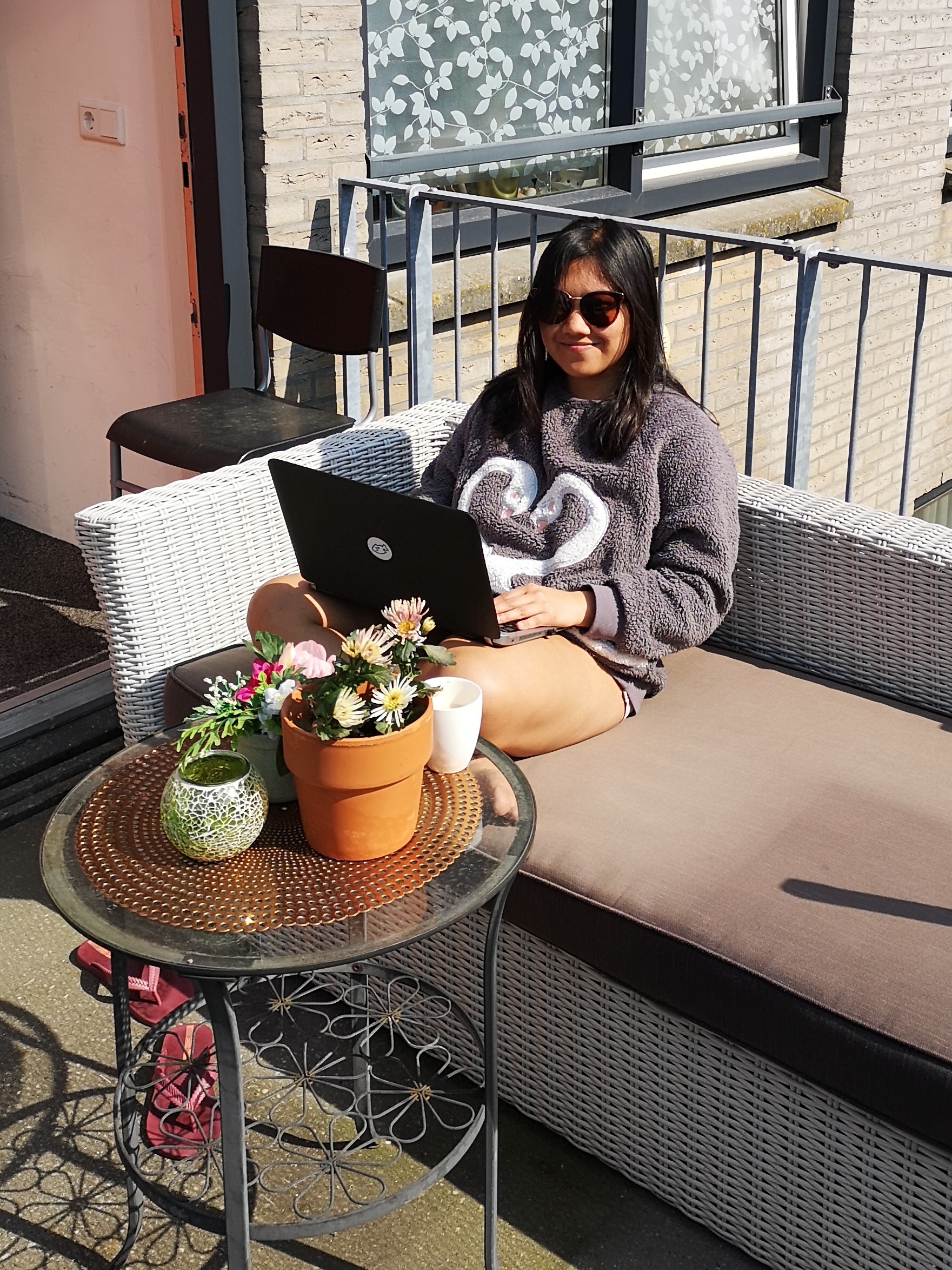Mundusians under the Covid-19 Lockdown: Part 8 - Sophia Balod
Welcome to the eighth interview in our series about Mundusians under the Covid-19 shutdown. Today, we say hello to alumna - Sophia Balod who tells us all about the lockdown period in Utrecht.

The Netherlands went into lockdown in mid-March and measures are slowly being eased from this week on. Sophia is based in Utrecht and has been working from home for the past few months.
Sophia graduated from the Mundus Journalism programme in Amsterdam in 2018. She is from the Philippines and is currently working as the Editor in Chief and Outreach Manager for the Seafood Trade Intelligence Portal and as a foreign correspondent for GMA News - a Philippines-based TV network.
Mundus Journalism: What is the situation like in the Netherlands right now? How long have Covid-19 measures been in place? What’s the mood like?
It has now been more than 2 months since social distancing measures were introduced and we were first advised to work from home. Restaurants are closed but you can still pick up food. No groups of more than 3 are allowed and a 1.5 m distancing rule has been applied. It is difficult to adjust to the “new normal” but I find that people are generally more relaxed about self-isolation. On a good day, you can find throngs of people in groups basking under the sun, drinking their worries away. Sadly, as an Asian myself, I have experienced discrimination to some extent such as being called “Corona” while picking up my mail. I have learned to say “Dat is niet aardig” (which loosely translates as “that's not nice”) if somebody tries something funny. ;)
Mundus Journalism: How have the Covid-19 measures affected your work?
I have mostly been working from home and I’m lucky to have a spare monitor hanging around. We do regular meetings and interviews with our sources in different parts of the world. The Seafood Trade Intelligence Portal has just released a magazine on the impact of corona on the shrimp trade, and this was quite a struggle as we could hardly keep up to date with what was happening in other countries. The situation has been changing every week.
In my other job, as a correspondent for GMA News, I haven’t been able to meet and interview people in person like I used to, therefore, I have been doing my interviews mostly via emails or video chats instead.
MJ: What kind of tools have you been using to facilitate working remotely?
Google docs, Zoom, Skype and Whatsapp.
MJ: Do you have any tips or tricks for fellow Mundusians working in the same field as you?
Detaching yourself from the work and home environment can be difficult when your supposed refuge for rest becomes a busy working environment. So, try to consciously detach after work and during your lunch breaks. Meditate, go for a run, etc. Invest in a good chair! It will be your friend.
As an editor dealing with international sources, it is always good to check up on your sources even if you don’t necessarily need something from them. Check that they are healthy and that they’re doing okay- it makes all the difference in building a good relationship with them.
MJ: How do you think your job will be affected in the long term i.e. once measures have been relaxed?
The Seafood Trade Intelligence Portal is a start-up company, so it’s quite difficult to predict whether our business will be impacted in the long term. In terms of communication, I think we have realized how feasible working from home actually is, and that some physical meetings can actually just be emails!
MJ: How do you think the world will change in the light of the Covid-19 pandemic? And what are your wishes for the future?
People around the world have realized that a pandemic of this scale affects everyone at different levels. I am one of the lucky ones to have been able to keep my job, and work from home (in the Netherlands). This is a privilege that a lot of people, especially from other developing nations, do not enjoy. This disparity and inequality is becoming more clear and hopefully through this ordeal, we will all become a little bit kinder, more aware, and more sensitive to the needs of disenfranchised people around the world. These are basic rights people should have access to, such as medical health care, food and shelter.
Thank you so much for sharing your insights with us, Sophia and all the best for your future with the Seafood Trade Intelligence Portal and GMA News!
If you want to check out Sophia’s work during the lockdown, here’s the magazine about the impact of corona on the shrimp trade and here’s an article she wrote about the impact of the corona virus on Filipino immigrants in the Netherlands.
Want to join the Mundus Journalism MA programme next year? Applications will open again on 10th November 2020!